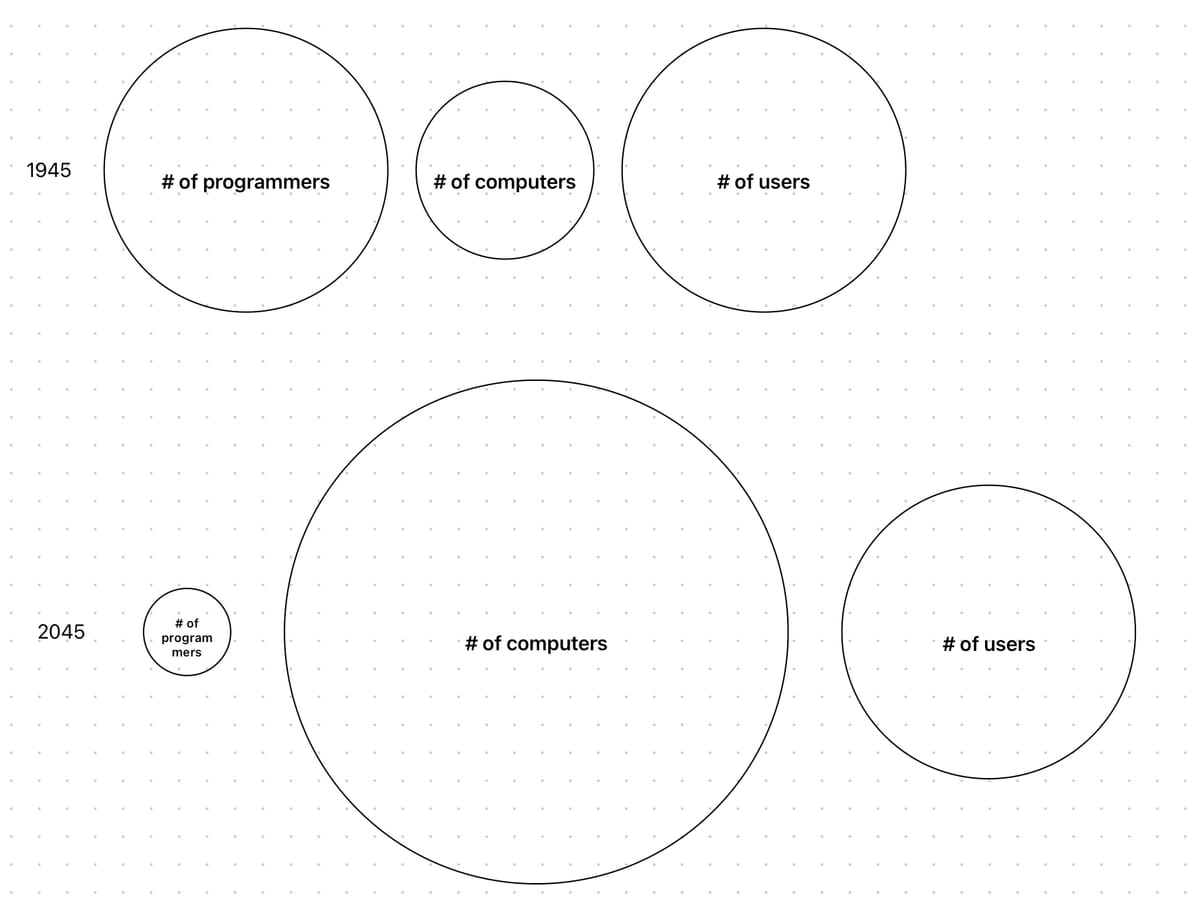The Leverage of Programming Keeps Going Up
ratios of program(mer)s

In 1945 in the first generation of computing (ENIAC mainframes), there were just as many programmers as there were computers and users, it was pretty much a 1:1:1 ratio.
In fact, there were probably more programmers than there were computers. And there was for sure less users than people who were programmers because computers were so opaque and hard to figure out.
80ish years later, there are way fewer programmers than there are users and there are fewer users than there are computers. Another way to phrase this is that a single user has multiple computers and most people can't program.
From the data that I've been able to source, fluent programmers (i.e., people who can get paid to program) occupy about one-third of one percent of the global population.
This is dwarfed by the 70% of the global population that has access to a smartphone.
And of the members of a society who do own a computational device, like a smartphone, they generally don't just own a smartphone; they'll own a laptop, and a tablet too, and all three will run separately. Not to mention smart TVs and smart appliances all over people's houses these days.
I don't think that the world will ever be as programmer = user = computer ratio ever again in the future. If anything, I think the number of computers is going to keep rising, and depending on population growth or decline, that number will change too but the users but will always stay much greater percentage wise than the programmers, even with the advent of LLM enabled programming.
This makes it an interesting comparison to something like literacy where the world strives to approach 100% literacy – but I don't ever think we'll get to a point where the world is 100% programmers, even with movements like the "Learn to Code" movement in the 2010s pioneered by the large tech companies and bootcamps like Code.org. I guess an apt comparison is that even in a world where everyone can read, few people are published authors.
Programmers have the added benefit of not writing to one audience like writers do (the reader), but to three separate audiences (other programmers, the end users, and the computers that run your code).
Archimedes said that if you gave him a lever big enough, he'd be able to move the world. If you are a programmer in 2024, you can move over 24 billion computers from the comfort of your living room.
Maybe go write some code?




